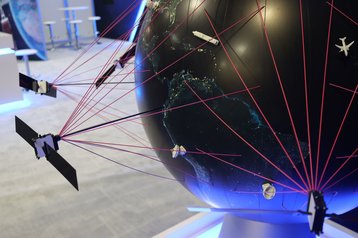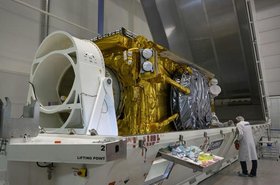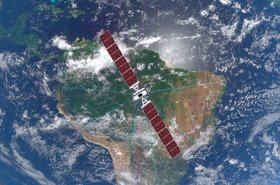The US Space Systems Command has awarded Microsoft with a one-year $19.8 million contract to develop a cloud-based space simulation.
Dubbed the Integrated, Immersive, Intelligent Environment (I3E) contract, it will be an augmented reality space simulation constructed on Microsoft's Azure cloud computing infrastructure, and viewable via the Microsoft HoloLens headsets.
The contract period commenced on December 1, 2023, and has the option to be extended by an additional three years.
Users of the I3E will be able to interact with space-based objects and digitally integrate capabilities into space architectures.
I3E is currently hosting four 'missions' on Microsoft's Azure cloud infrastructure including a physics-based space environment and satellite simulation; space intelligence collection and scheduling; strategic orbital wargaming; and augmented reality space simulation.
It is also pursuing accreditation so that it can hold unclassified and classified information which will mean the SSC can move prototype capabilities into reality.
The solution is currently only available to the Space Force's Los Angeles location but is hoped to eventually scale to other locations, meaning that users can access it via a virtual desktop.
“Continuing the development and deployment of the I3E is going to pay huge dividends for our [users],” said Col. Richard Kniseley, senior material leader for the Commercial Space Office at SSC. “Linking numerous sites together through the robust digital ecosystem provides an unrivaled experience to better understand the space domain.”
2021 saw Microsoft win a $22 billion deal to deliver 120,000 custom HoloLens kits to soldiers in the US Army following a three-year prototyping period.
However, in January 2023, congress rejected the US Army's request for $400m to purchase up to 6,900 Microsoft HoloLens combat goggles as more than 80 percent of soldiers reported discomfort after wearing them for a few hours, such as nausea, headaches, and eyestrain.
That same month the company laid off its AltspaceVR team. In February 2023 the cloud giant laid off its metaverse team, seemingly intending to focus on generative AI.




